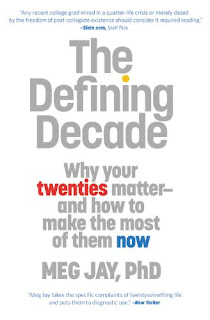Literature Review #3
For my third scholarly source I will be looking a scholarly article written by Meera Komarraju and Christopher Dial titled "Academic Identity, Self-Efficacy, and Self-Esteem Predict Self-Determined Motivation and Goals." Both these authors hold doctorate degrees in psychology and are very knowledgeable when conducting their studies. This article describes how ones self-efficacy can be directly related to their motivation and attitude when facing tasks or challenges. The authors state "High academic self-efficacy and implicit beliefs about the changeable/malleable quality of intelligence are associated with stronger motivation, greater concentration, and deeper processing of study material." So when talking about an individuals college experience, it is greatly affected by the self-efficacy that they possess.
I will use this information to apply to fraternities and their pledging processes. Pledging is a process that most fraternity members have to go through in order to become an official member and part of the "brotherhood". This is a process that might require a lot from the potential members and once/if they complete the process, they are left with a higher sense of self-efficacy because it is a challenging task that not everyone can go through. This will build their confidence when facing new challenges in the future and have a background in overcoming challenges in their life, whether it be social or academic. On the other hand, the article also proposes a counter argument with, "We also establish that socially oriented students have lower academic self-efficacy, lower self-determined motivation, and a preference for performance goals." This can be applied to the overall social aspect that comes with joining a fraternity so there a conflicting opinions that I will be looking at when answering the question of whether fraternities help build identity capital within its members and if it is worth the risks that come with joining a fraternity.
I will use this information to apply to fraternities and their pledging processes. Pledging is a process that most fraternity members have to go through in order to become an official member and part of the "brotherhood". This is a process that might require a lot from the potential members and once/if they complete the process, they are left with a higher sense of self-efficacy because it is a challenging task that not everyone can go through. This will build their confidence when facing new challenges in the future and have a background in overcoming challenges in their life, whether it be social or academic. On the other hand, the article also proposes a counter argument with, "We also establish that socially oriented students have lower academic self-efficacy, lower self-determined motivation, and a preference for performance goals." This can be applied to the overall social aspect that comes with joining a fraternity so there a conflicting opinions that I will be looking at when answering the question of whether fraternities help build identity capital within its members and if it is worth the risks that come with joining a fraternity.
Komarraju, Meera, and Christopher Dial. “Academic Identity, Self-Efficacy, and Self-Esteem Predict Self-Determined Motivation and Goals.” Learning and Individual Differences, vol. 32, 2014, pp. 1–8., doi:10.1016/j.lindif.2014.02.004.


Comments
Post a Comment